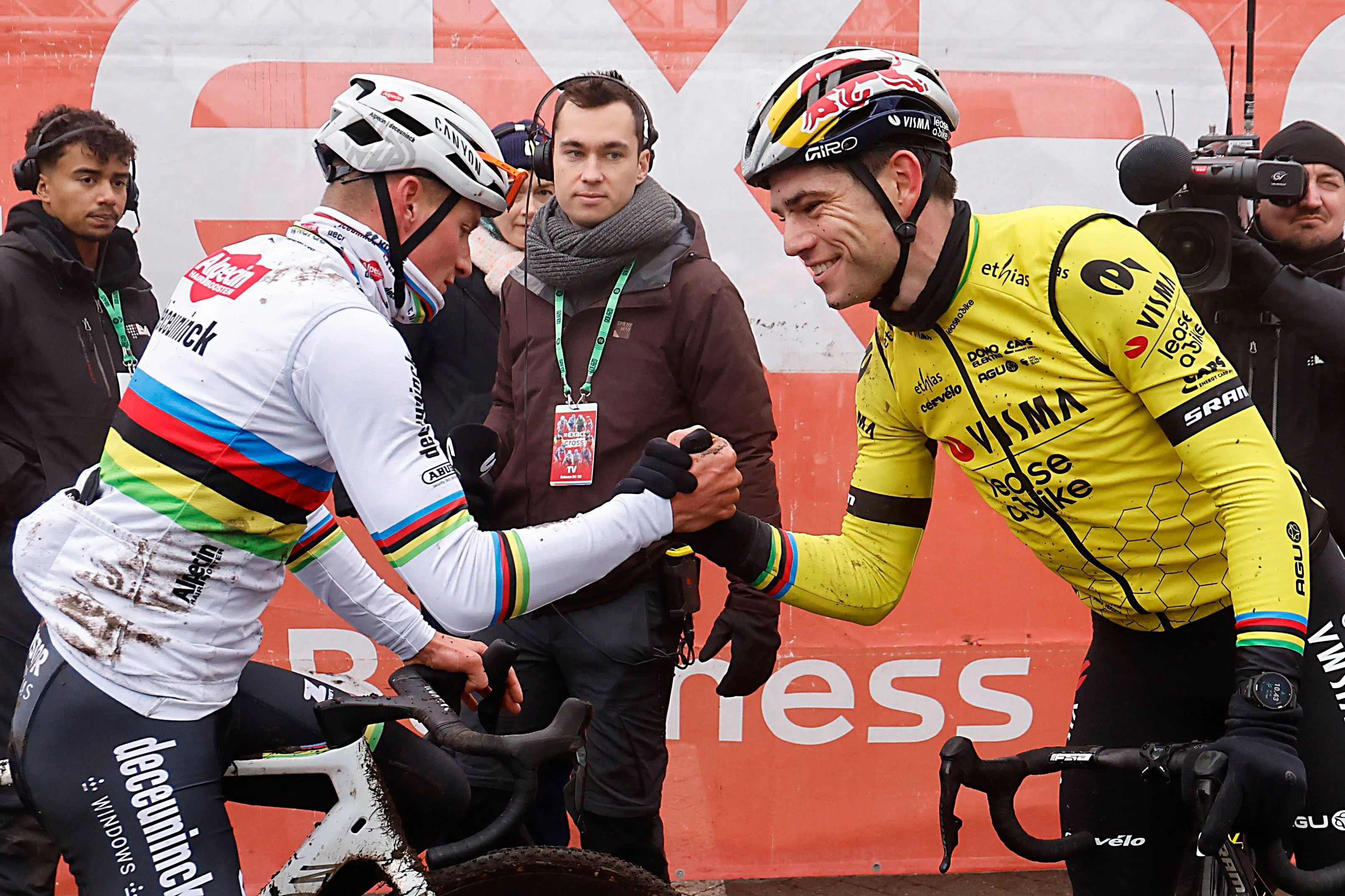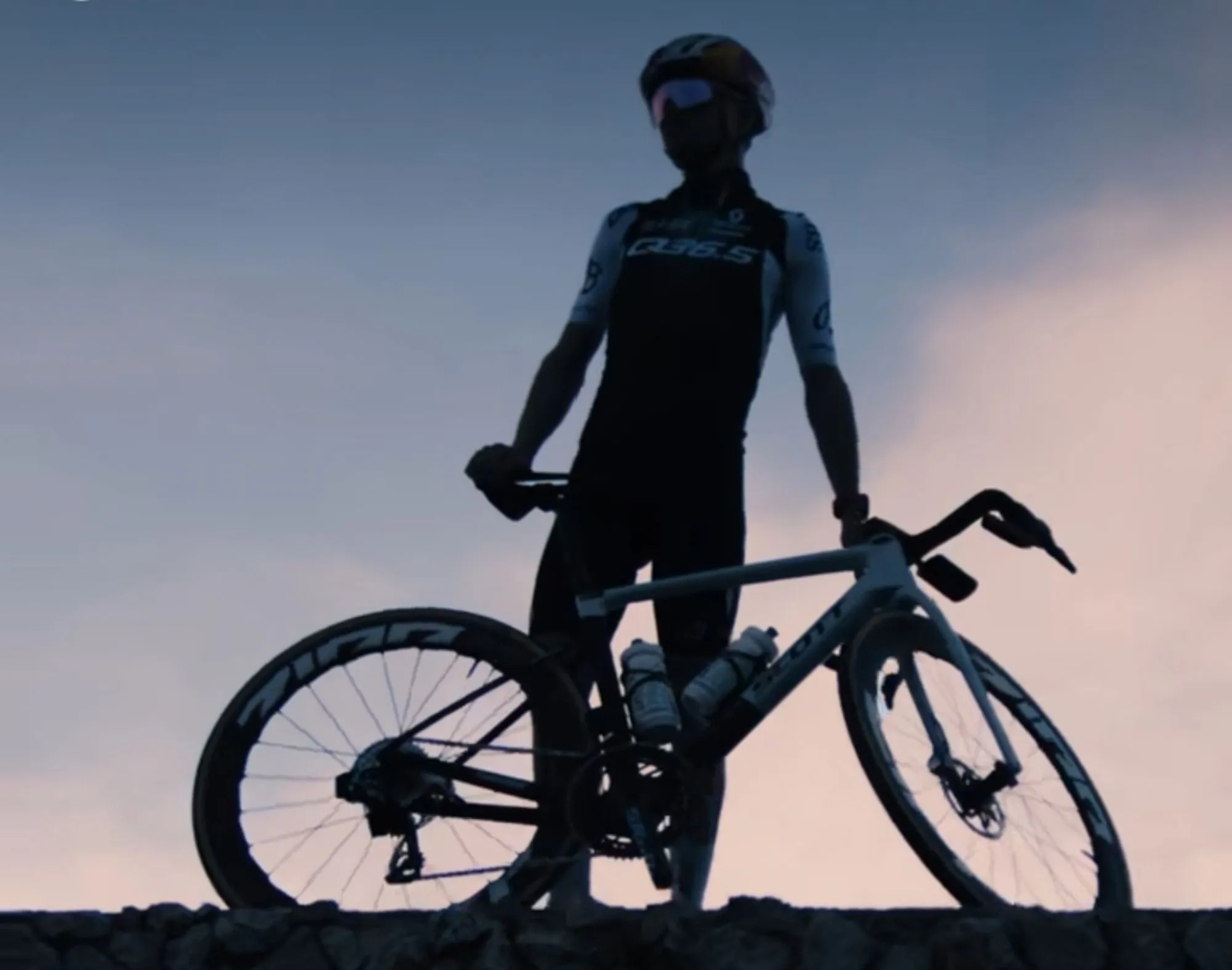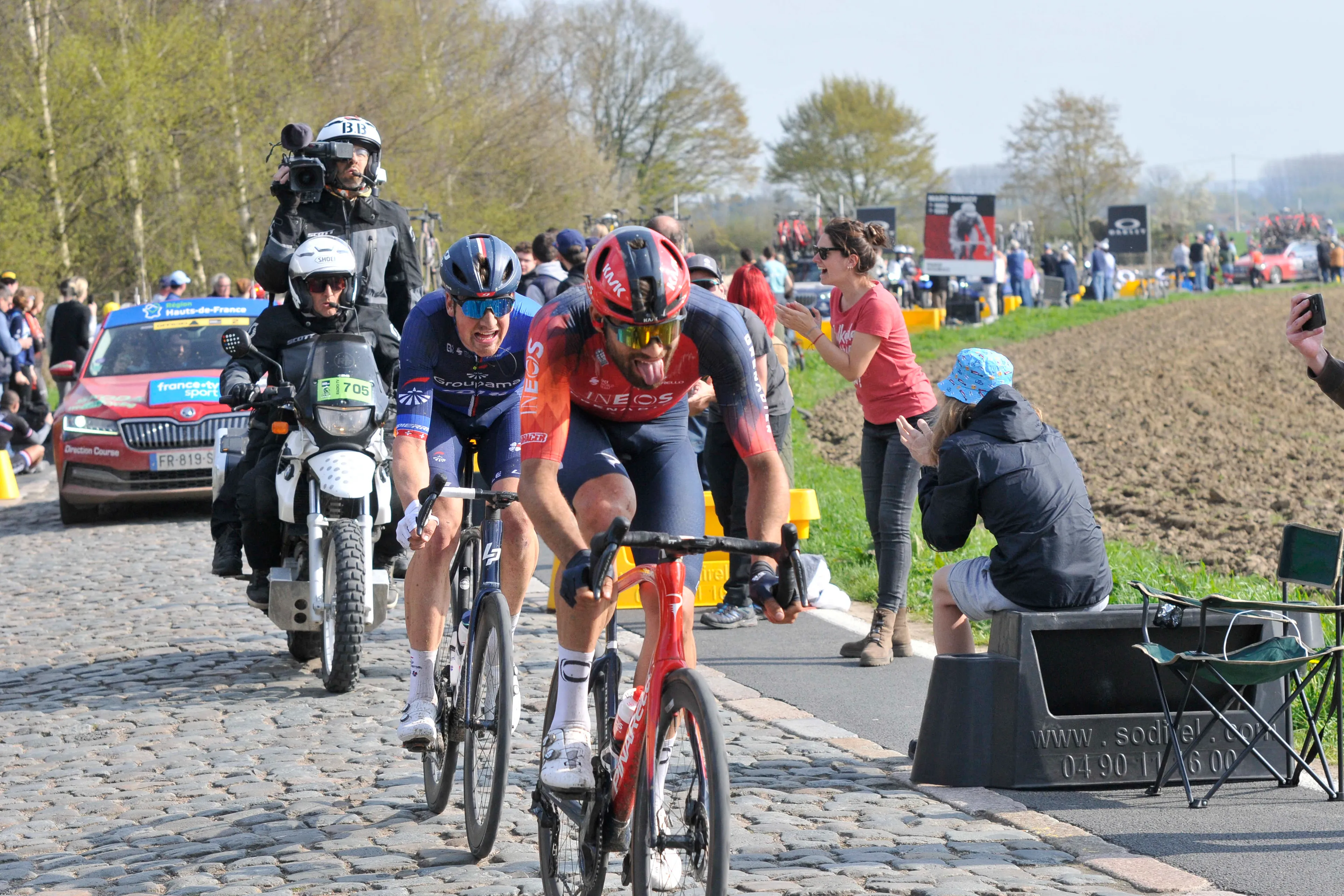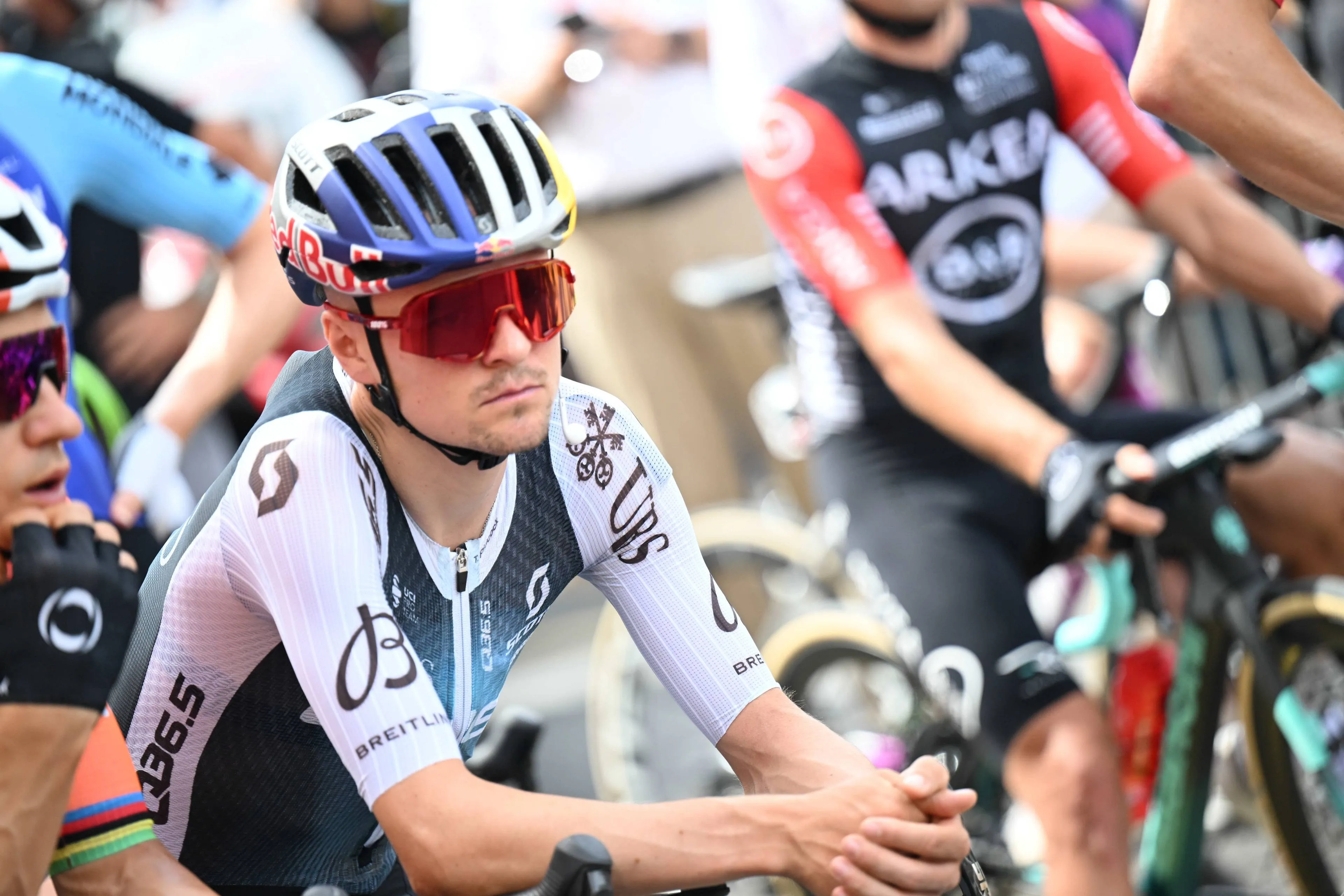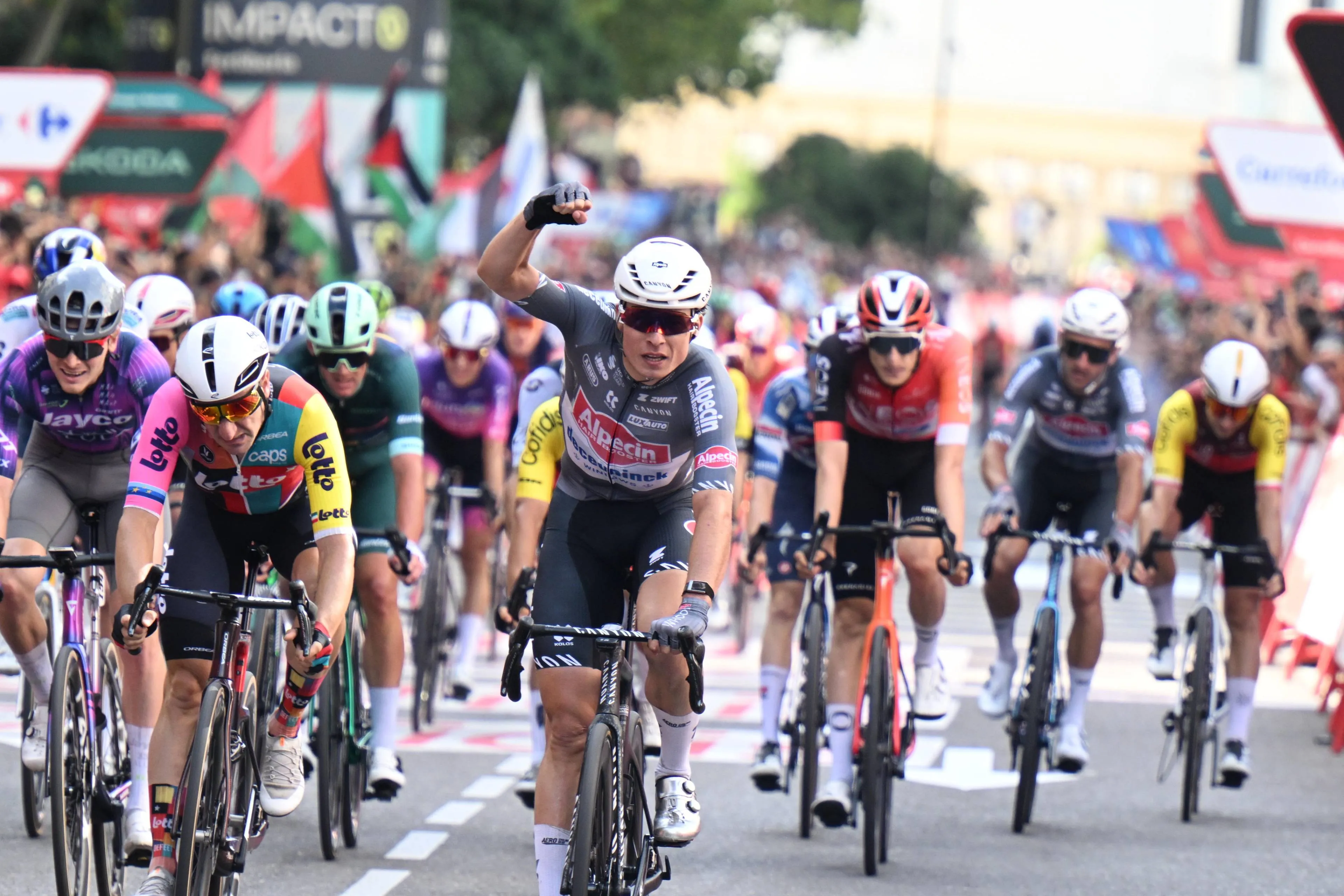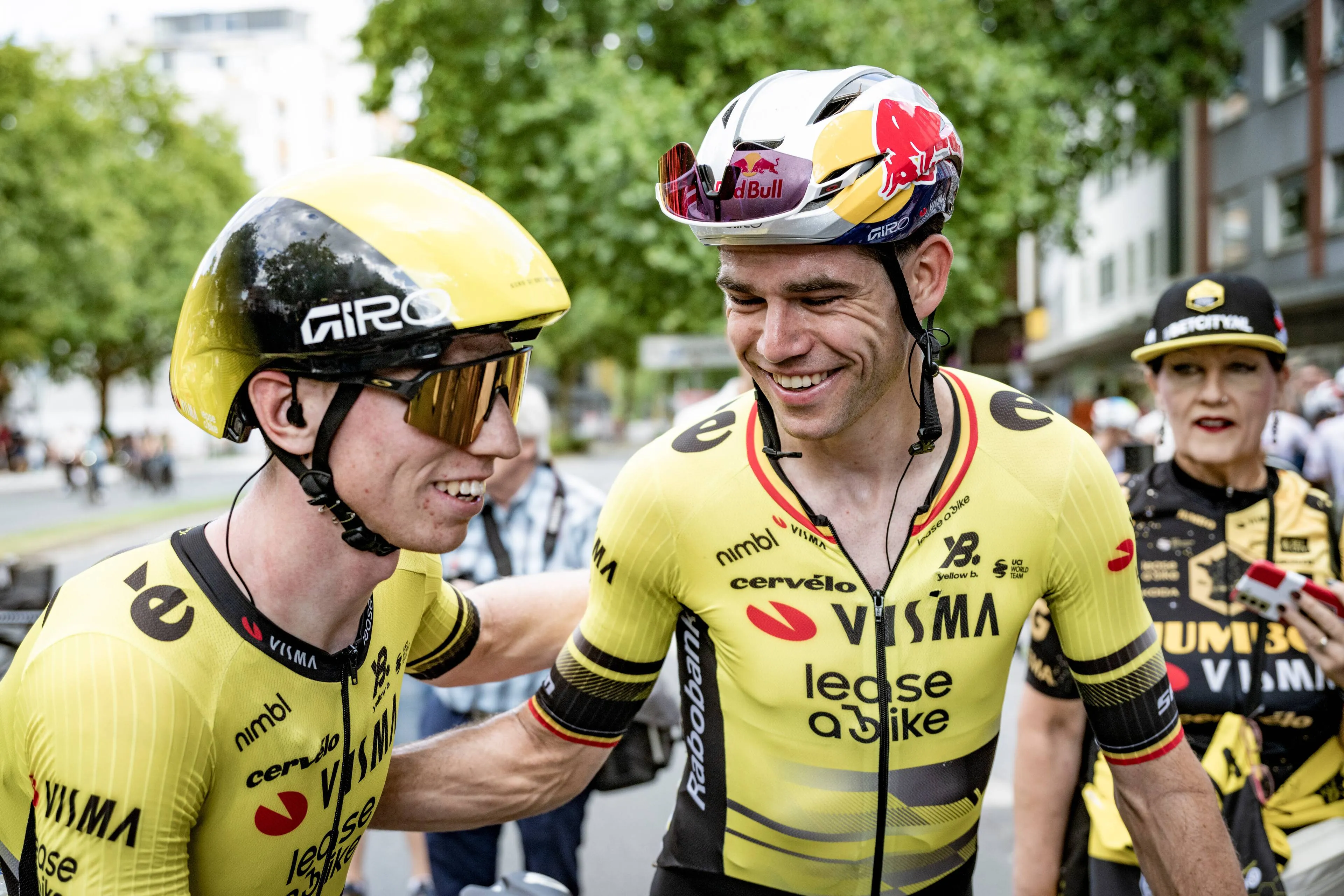Tejay van Garderen: "Reducing a peloton from 9-rider teams to 8-rider teams hasn't made a single difference, reducing the gears wouldn't make a difference"
CyclingMonday, 13 January 2025 at 13:14
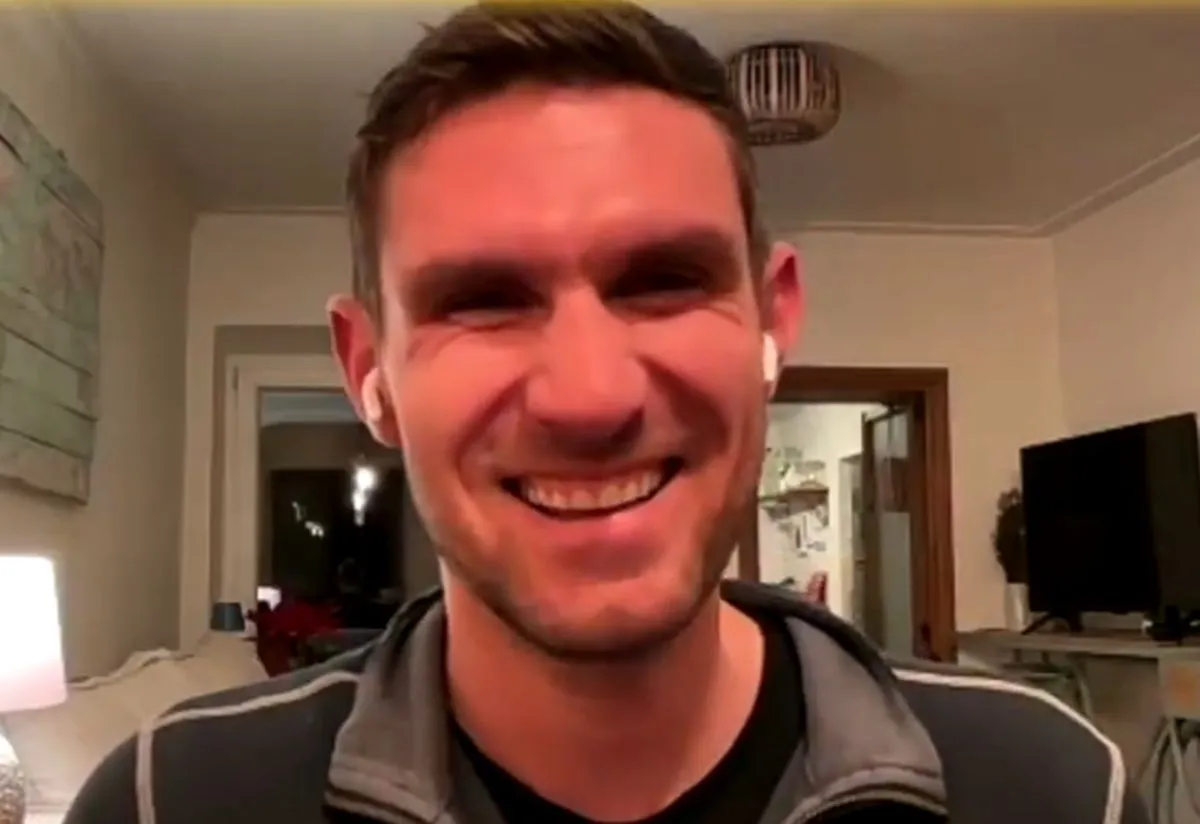
Safety in the peloton is a very hot topic in the world of cycling at the moment. Tejay van Garderen and Brent Bookwalter, who retired around the time that speeds began dramatically increasing, have shared their opinions on the matter.
"I hate to say this, I hate to be the one saying 'the riders make the race safer' but it's kinda true," van Garderen said in the 'Beyond the Podium' podcast of NBC Sports. "Back in the day we used to go to Mallorca Challenge and there used to be no breakaway because no-one wanted to attack and we'd be going slowly and then ramp up in the end and sort itself out and those early season races were safer".
At the time being there is no chance of that happening, although occasionally we do see similar interestingly enough in the flat stages of Grand Tours, where teams are so focused in obtaining results that they make the decision to not send any rider to the front even if it would bring meaningful exposure.
Read also
At the time being the ages in the peloton are getting smaller and smaller, with young riders performing stronger and developing at a younger age, teams constantly increase their focus on them. "95% of the peloton don't even have fully developed frontal lobes so they're going to be sending it any chance they get," he joked.
A few propositions are being sent over the past few months, amongst them being reducing the size of chainring gears to limit the speeds going downhill. But van Garderen isn't optimistic that this would even make a difference: "They are racing the way they're racing, and the way we're racing at the end of our careers, that's what made racing quite a bit more dangerous and I'm glad to be out of it now but these gimmicky things like reducing a peloton to 9-rider teams to 8-rider teams hasn't made a single difference, reducing the gears wouldn't make a difference".
Bookwalter, a former teammate at BMC, agreed. "At the end of my career guys were ratcheting up those chainrings and I was just 53, keep my 53 on. The average age of the peloton, I don't know the exact stat, but observationally it's definitely going down. And that's an example of 'the riders make the race safe'. A young 19-year, 20-year old male has a different decision making process and risk profile than 37-year old Brent on the verge of retirement".
Read also
"95% of the peloton don't even have fully developed frontal lobes. Yeah, they're going to be sending it every chance they get." 😂
— NBC Sports Cycling (@NBCSCycling) January 9, 2025
Tejay Van Garderen and Brent Bookwalter on how the average age of the peloton impacts rider safety. pic.twitter.com/gMjkgVjB3C
claps 12visitors 6
Just in
Popular news
Latest comments
- Great champion Remco but his profile is more suitable for Ardennes-like races and tour with no very hard climbs. Not only Tadej and Vingegaard, there are a lot of younger cyclists (del Toro, Ayuso, maybe Seixas, Nordhagen and others) that will soon be big GC boys.
 maria2024202418-02-2026
maria2024202418-02-2026 - Evenopoel 1st real test, and he failedZamorano18-02-2026
- Remco is not the natural climber that riders like Tadej or Jonas are, no matter how much he trains and prepares for it. Yes, you can TT your way up moderately steep hills, but when the gradient gets super steep, he just can't keep up.
 santiagobenites18-02-2026
santiagobenites18-02-2026 - So against the better riders and a long mountain, Remco cracked. Sorry but way away from Pog and Jonasabstractengineer18-02-2026
- “I was portrayed as the devil" Bruyneel was really a talented team manager. His minor flaws: "coordinated, well-funded, and sophisticated doping regime" "hand-in-hand in implementing the team-wide doping programme" "was involved in trafficking and administering prohibited substances and methods, including EPO, blood transfusions, testosterone, human growth hormone, and cortisone. Teammates testified that nothing significant happened without Bruyneel's knowledge and approval." "fostered an environment where doping was considered a "fact of life" and necessary for success, effectively making it a condition of survival on the team. He also participated in or assisted with the cover-up of positive tests and doping violations." Those quotes show Bruyneel's true talent.Cyclingnut18-02-2026
- Fed up hearing "their" voicesslappers6618-02-2026
- When you join Ineos , learning , time , no pressure go out of the windowabstractengineer18-02-2026
- The UCI screws up againcaptmike18-02-2026
- No matter what people say - I'll watch it. And I bet all the complainers will do it too....averagecyclist18-02-2026
- Exactly what I'm thinking about it. Moreover Van Glis had a lot of time to rethink his situation but decided to stay where he was.averagecyclist18-02-2026
Loading
8 Comments
